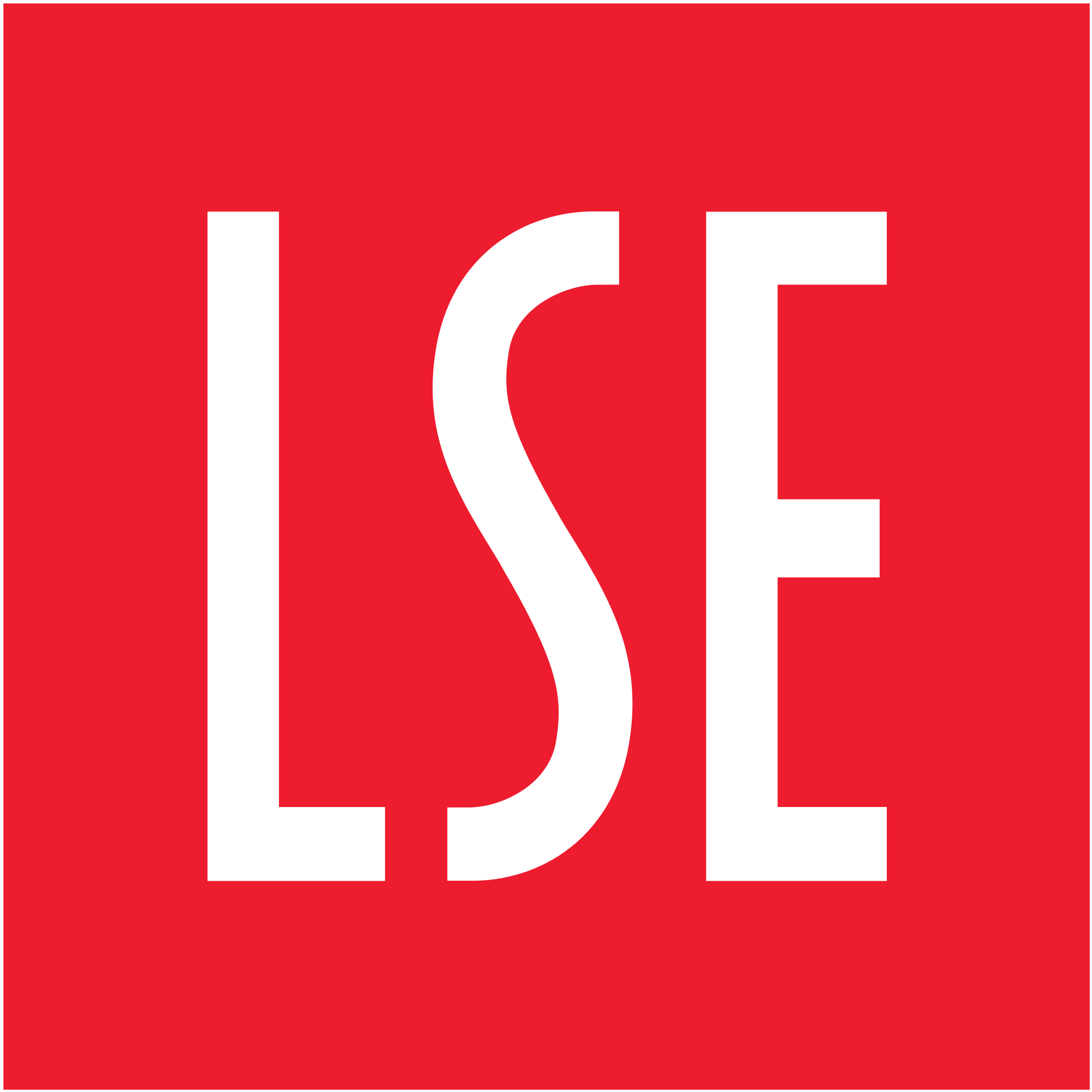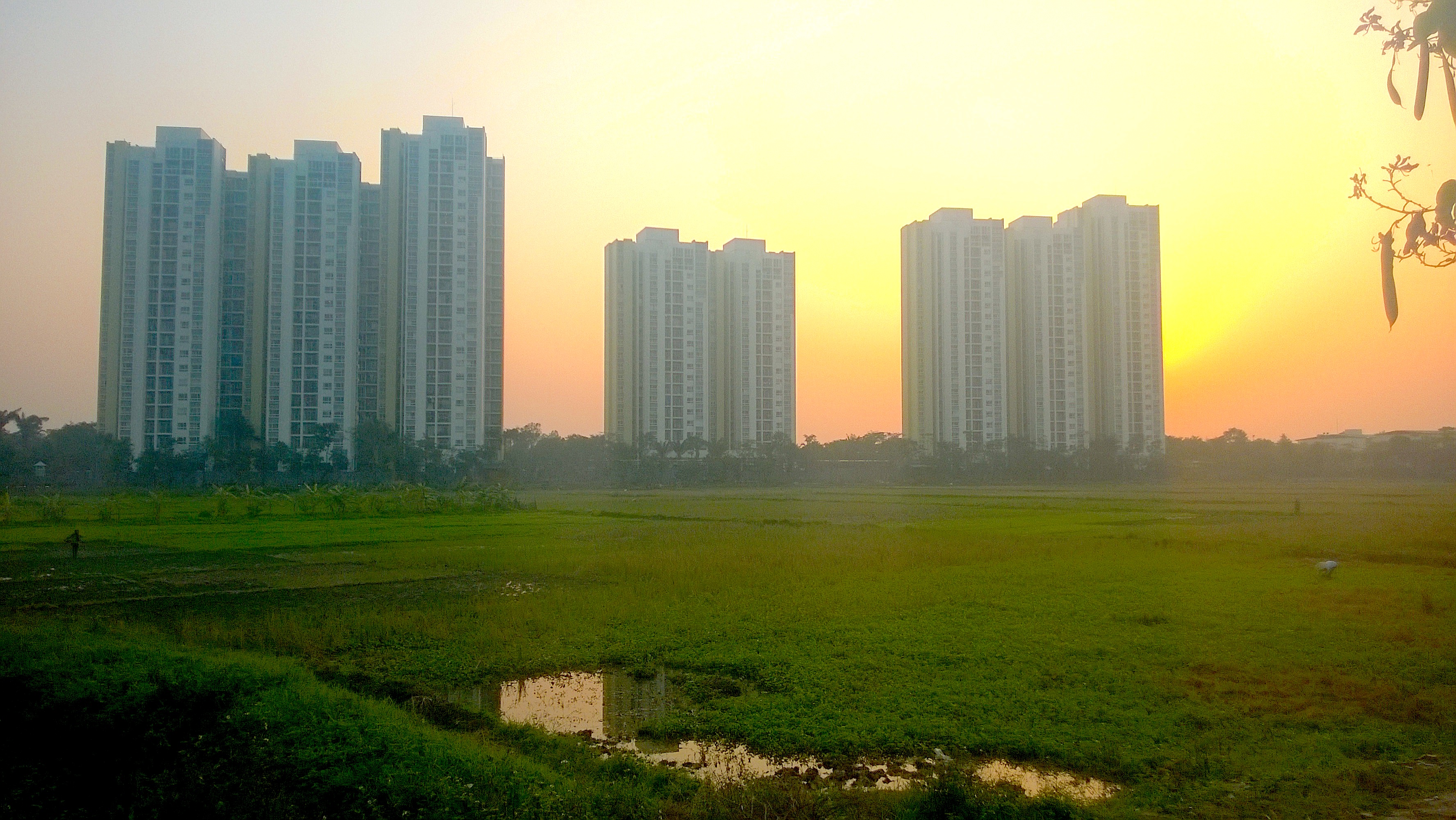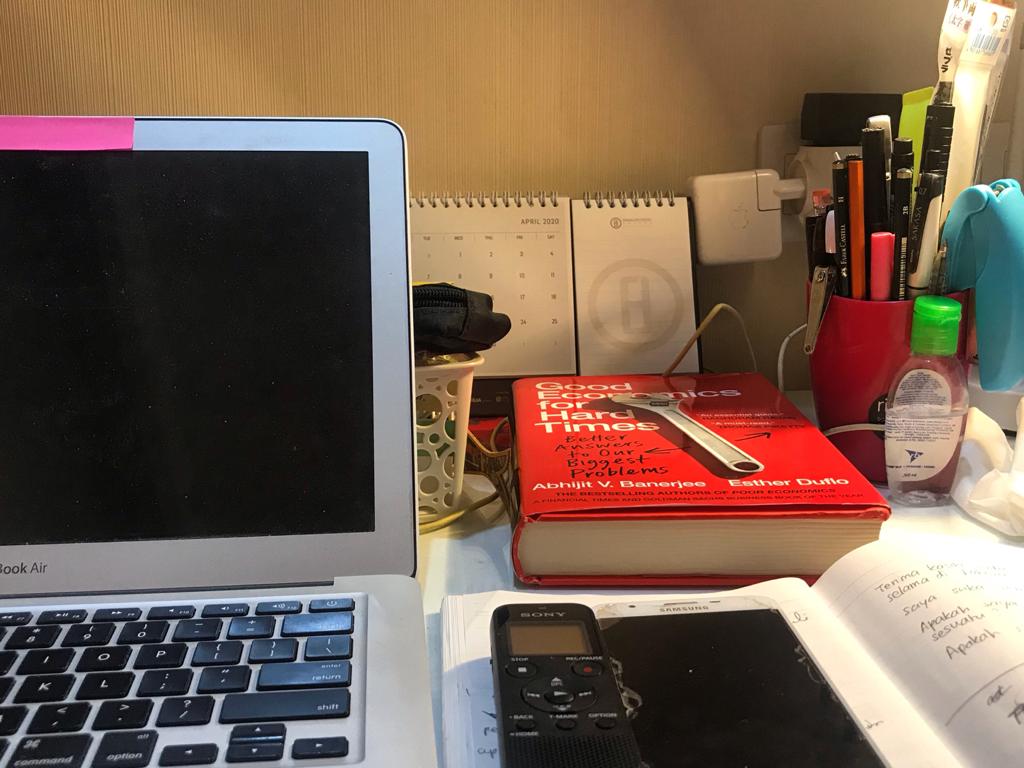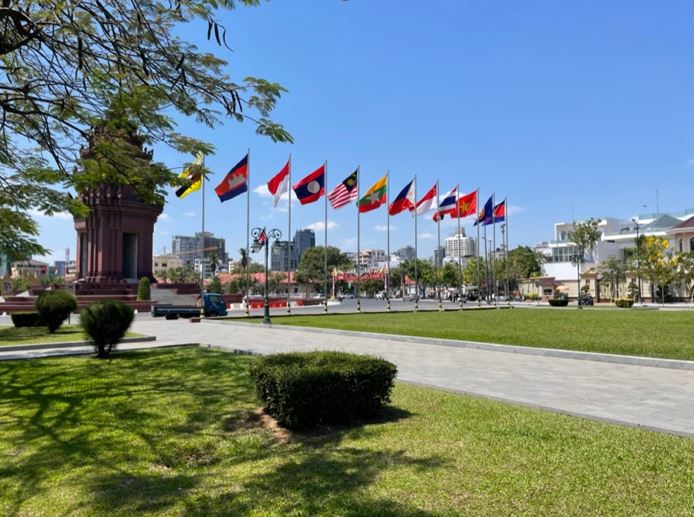COVID-19 upended many researchers’ plans, with in-person fieldwork no longer possible for many. This blog outlines how I adjusted and adapted my MSc dissertation plans utilising the SEAC Dissertation Fieldwork Grant. I ultimately took a different angle to my research questions, focusing on publicly available information and analysing the state’s behaviour, writes Gray Brakke
_______________________________________________
When I started to think about my dissertation plans at the beginning of my MSc programme in September 2020, I was hopeful that an imminent return to “normalcy” was on the cards, which would have meant travelling to Vietnam to undertake in-person fieldwork. As the year progressed, I came to realise that I would be restricted to remote methods. I was still determined to press ahead with my topic—an examination of the Vietnamese state’s seemingly contradictory logics of land management in Hanoi’s city centre and its peri-urban fringe—but had to figure out how to adapt it to remote conditions. Fortunately, the conditions of the Dissertation Fieldwork Grant from LSE Saw Swee Hock Southeast Asia Centre (SEAC) had been similarly adapted to our “new normal”: funds could instead be used to obtain professional assistance like translation. After a year working as an English teacher, I had progressed to an intermediate level of Vietnamese, but I did not know enough to make translating large amounts of written material a feasible option given the time constraints associated with the dissertation. What follows is an account of the methods I adopted to cope with the conditions of the COVID-19 pandemic.
First, I should provide some background on what exactly I was trying to study. Comprising the vast majority of Hanoi’s housing stock, self-built housing exploded in popularity in Hanoi’s city centre from the 1980s to the early 2000s. Self-building typically occurred illegally or extralegally, with a 1997 estimate suggesting nearly 90 percent of construction in the city being in some way illegal (Koh 2004: 340). Hanoi’s self-builders thus routinely flouted the laws of a putatively authoritarian state, and they were even allowed to obtain land use rights certificates (roughly equivalent to ownership, as all land in Vietnam is technically owned by the state). By the mid-2000s, however, the state was increasingly promoting the development of master-planned new urban areas on the city’s peri-urban fringe. To assemble the land necessary for these large-scale projects, the state, as the owner of all land, could unilaterally expropriate agricultural land belonging to peri-urban villagers at meagre rates. When villagers have tried contesting expropriation, the state has come down hard: in the 2012 Văn Giang incident, 3,000 villagers who refused to vacate their land clashed with 2,000 police officers and saw their agricultural fields bulldozed. Ultimately, peri-urban villagers’ completely legal claims to land use rights have been less respected than city centre self-builders’ extra-legal claims, with the state far less tolerant of their dissent. Given the prominence of rights claims to these disparate land use contestations, I conceptualised them in terms of citizenship. I thus asked, when asserting their urban citizenship, why have self-builders in Hanoi’s city centre been able to successfully challenge state authority, but peri-urban villagers have been violently expropriated while doing so?
To answer this question, I performed a content analysis of 73 news articles and 47 laws, and I conducted six remote, semi-structured interviews with researchers of Vietnamese land politics. Were it not for the movement restrictions imposed by COVID-19, I would have travelled to Hanoi myself and taken a more interview-heavy, ethnographic approach. Since I aimed to uncover the motives of an opaque state suspicious of foreigners, ethnography would have been useful to facilitate the interpretive co-construction of data (Malkki 2007). Moreover, given the highly sensitive nature of land issues in Vietnam and the state’s hostility to dissent, it would have been much easier to build relationships with potential interview subjects—particularly the city centre self-builders and peri-urban villagers whose actions animated this research. Lacking access to interview subjects on the ground, I was forced to take a more state-centred approach using publicly available information. I therefore selected methods that would allow me to analyse and speculate on the state’s actions, reading between the lines of a state-controlled media environment and the state’s own disseminations. That said, I was still able to secure a few interviews with researchers who could offer relatively unfiltered insights.
Initially, I planned to interview lawyers working on land issues: I searched for “land law” in Vietnamese (pháp luật đất đai) on Google and created a list of 20 firms practising land law with offices in Hanoi. I then emailed all of them twice in English and Vietnamese, and only three replied—one offered to answer my questions for 10 million VND (US$435), and the other two stopped replying after I sent my questions. The difficulty I experienced in recruiting interview subjects who may have only witnessed—not perpetrated—illegal or extra-legal activities illustrates the sensitivity of these issues in Vietnam. Still considering interviews of people with on-the-ground experience necessary, I then contacted researchers of Vietnamese land politics. One interviewee was instrumental for this effort and kickstarted the snowball process by which I recruited the rest of my interviewees. I ultimately interviewed six researchers, two foreign and four Vietnamese. I conducted three interviews via Zoom, ranging from 30 or 45 minutes in length, and I conducted three interviews via email; all but one was conducted in English. Though I speak some Vietnamese, questions and answers for the Vietnamese interview were professionally translated—thanks to the support of the SEAC dissertation fieldwork grant—to ensure accuracy. These interviews were invaluable for me to contextualise the laws and media reports I analysed as well as to develop the broader arguments I used to answer my research question.
Given my focus on the ability of self-builders in the city centre to effect changes in Vietnamese law and claim land use rights, analysing laws and regulations seemed like a natural methodological choice—and I could easily pursue it remotely. I utilised Thư Viện Pháp Luật (Law Library), a website providing access to over 350,000 Vietnamese laws, regulations, and other policy edicts. A premium membership purchased with the support of SEAC’s dissertation fieldwork grant enabled me to access English translations of most of these laws. To identify relevant laws, I started with those discussed by Nguyen (2004), Han and Vu (2008), Kim (2011), and Labbé and Musil (2014) and followed the website’s links to related laws (i.e., those which amended or supplanted the ones I examined and vice versa). In so doing, I compiled 47 laws and regulations issued between 1980 and 2020, comprising three constitutions, eight laws (high-level legislative frameworks), 23 decrees (legislation that amends or guides the implementation of laws), and 13 other regulations and resolutions. Of these, only four were unavailable in English through Thư Viện Pháp Luật and were professionally translated. Given the prominence of illegality and extra-legality in this research, the substantial gaps between written laws and actual practices may make it seem like a content analysis of laws was a questionable choice. As Holston (2008: 24) argues, however, “Even when other factors animate the performance of citizenship, their efficacy is in some fashion grounded in its legal framework.” Indeed, analysing laws helped indicate how Vietnamese law was responding to that which it has defined as outside of it.
To analyse how expropriation and resistance have unfolded in recent years, I utilised media reports, the perspectives of which could provide a somewhat—but not entirely—independent perspective. Again, this method was useful given its remote practicability. In spite of Vietnamese news organisations’ universal state ownership, the state has increasingly tolerated reporting on contentious land issues, which generate considerable attention and thus drive readership (Kim 2011). I compiled articles from three newspapers: Tuổi Trẻ (Youth, Vietnam’s most widely circulated newspaper), Pháp luật (Law), and Nông nghiệp (Agriculture). I selected them because an interviewee reported that they had fairly independent coverage of relevant issues. I searched each newspaper’s online archives back to 2004 using the following keywords: nhà ở tự xây (self-built housing), xây dựng trái phép (illegal construction), quyền sử dụng đất (land use rights), and thu hồi đất [khu đô thị mới] (land expropriation [new urban areas]). This process yielded 73 relevant articles; though I know enough Vietnamese to have scanned them for key points, the time constraints associated with this research and my lack of full fluency led me to have the most important passages from 30 of these articles professionally translated—again, thanks to the support of the SEAC dissertation fieldwork grant. From this analysis, I was able to discern recent trends and events in land management, particularly surrounding controversial expropriation incidents.
Taken together, these methods allowed me to remotely ascertain plenty of data to analyse for my dissertation. Even though I would have preferred to conduct fieldwork in Hanoi in person, focusing my analysis on the state proved a productive way to answer my research questions. My analysis ultimately took on a more speculative tone that it perhaps would have had I been able to more establish local contacts with relevant knowledge of the issues I was studying, but given the secretive nature of the Vietnamese state, this would have at least somewhat been the case regardless. That the SEAC dissertation fieldwork grant enabled me to obtain translation assistance meant I could quickly analyse a large amount of written material in a very short time, providing a very different sort of access to the field. In spite of the unique challenges posed by writing a dissertation during the COVID-19 pandemic, remote methods enabled me to creatively reframe my research to critique the Vietnamese state’s discursive politics of urban development.
References
Han, Sun Sheng, and Kim Trang Vu. (2008) “Land Acquisition in Transitional Hanoi, Vietnam.” Urban Studies, 45(5&6): 1097–1117. www.jstor.org/stable/43198425
Holston, James. (2008) Insurgent Citizenship: Disjunctions of Democracy and Modernity in Brazil. Princeton: Princeton University Press.
Kim, Annette M. (2011) “Talking Back: The Role of Narrative in Vietnam’s Recent Land Compensation Changes.” Urban Studies, 48(3): 493–508. DOI: 10.1177/0042098010390234
Koh, David. (2004) “Illegal construction in Hanoi and Hanoi’s wards.” European Journal of East Asian Studies, 3(2): 337–69. DOI: 10.1163/1570061042780928
Labbé, Danielle, and Clement Musil. (2014) “Periurban Land Redevelopment in Vietnam under Market Socialism.” Urban Studies, 51(6): 1146–61. DOI: 10.1177/0042098013495574
Malkki, Liisa H. (2007) “Tradition and Improvisation in Ethnographic Field Research.” In Improvising Theory: Process and Temporality in Ethnographic Fieldwork, edited by Allaine Cerwonka and Liisa H. Malkki, 162–87. Chicago: University of Chicago Press.
Nguyen Van Suu. (2004) “The Politics of Land: Inequality in Land Access and Local Conflicts in the Red River Delta since Decollectivization.” In Social Inequality in Vietnam and the Challenges to Reform, edited by Philip Taylor, 270–96. Singapore: Institute of Southeast Asian Studies.
______________________________________________
*Banner Photo by Vuong Tri Binh, licensed under CC BY-SA 4.0 (modified from original).
*The views expressed in the blog are those of the authors alone. They do not reflect the position of the Saw Swee Hock Southeast Asia Centre, nor that of the London School of Economics and Political Science.





